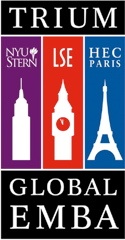Street marketing. Authentic. Scaled on YouTube.
 Tuesday, October 2, 2007 at 2:01PM
Tuesday, October 2, 2007 at 2:01PM Marketers, take the lesson.
What happened one night on the Paris subway.
Questions:
1. Why does this work as a viral video?
2. What was its impact on the people on the subway? How did that impact develop?
3. Was that impact captured?
4. How many video sources were there?
5. Who edited them?
6. How was the soundtrack synchronized?
7. Does the video "feel" spontaneous?
8. How much planning and direction were required to make this "feel" spontaneous?
9. Does the video seem authentic, in that sense of "non-contrived" and "from the heart"?
10. Why is this method of promotion more trustworthy than other planned/managed promotions?
11. What guarantees did Naturally 7 have that the video would be viral?
12. How did their choice of venue help their efforts to be viral?
13. Is Naturally 7 bigger in Europe or in the US? Why?
14. The five forces of CEM in this context are: YOU (with your own values, demand for utility, and cultural associations), networks of opinion, networks of data, your experience of Naturally 7's brand in general, and your direct experience interacting with or engaging with Naturally 7's products.
a. Which force in this case builds the most trust in Naturally 7's ability to deliver?
b. Which forces are therefore less important?
c. To what extent is Naturally 7's video playing positively on your own values, cultural associations and demand for "utility" (hey, I can "get" this video and "use" it for some valuable purpose)?
d. Is "cool" useful?
e. Is engaging in "cool" things affirming of one or more of your values?
15. And the biggest question of all: Why does this performance work so well on a subway? Don't people normally try not to engage entertainers on a subway?




Reader Comments